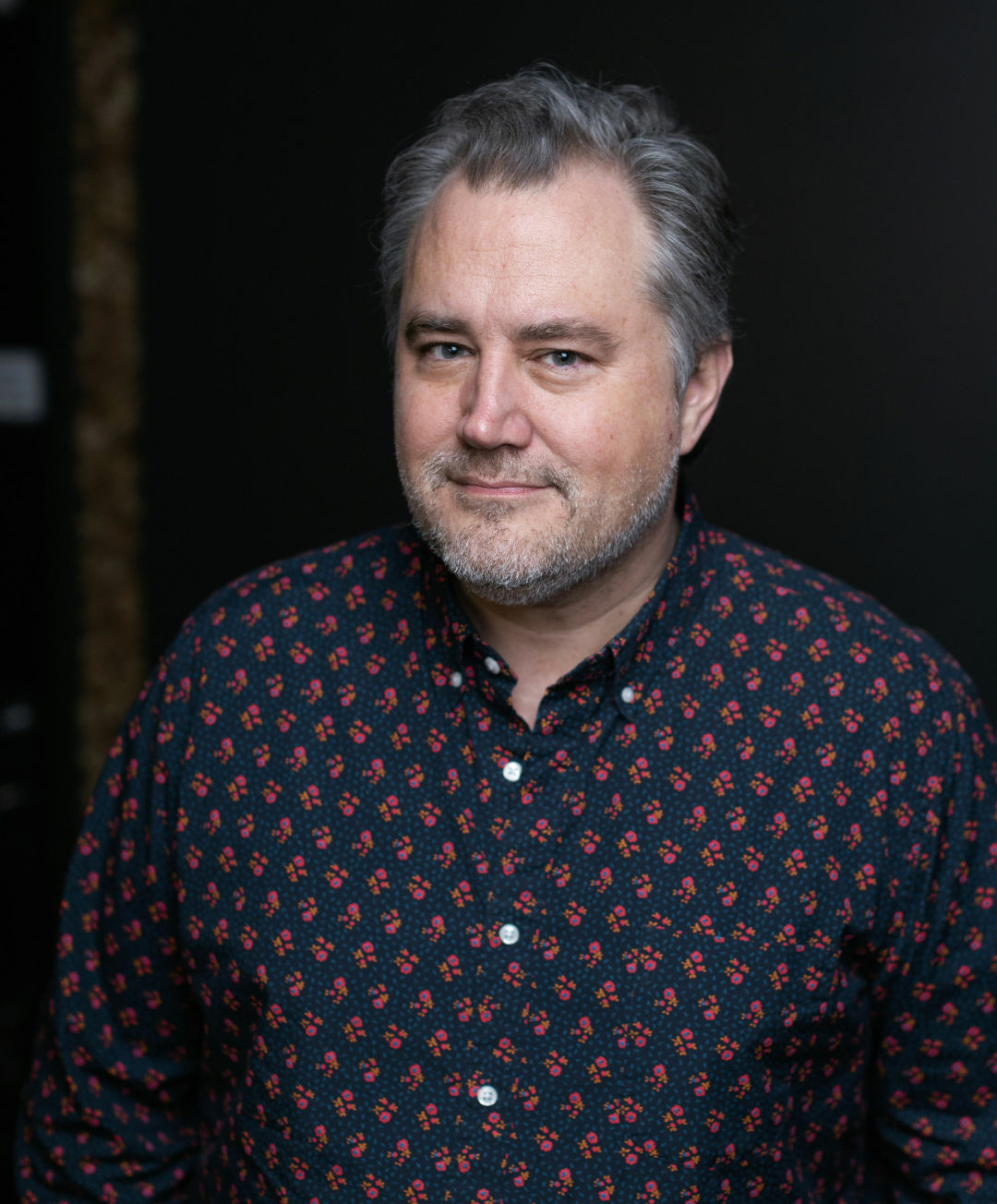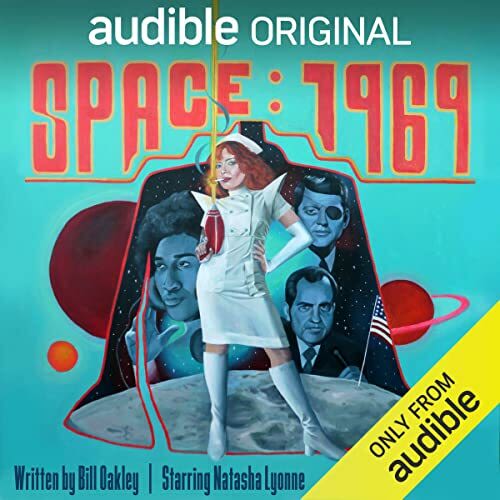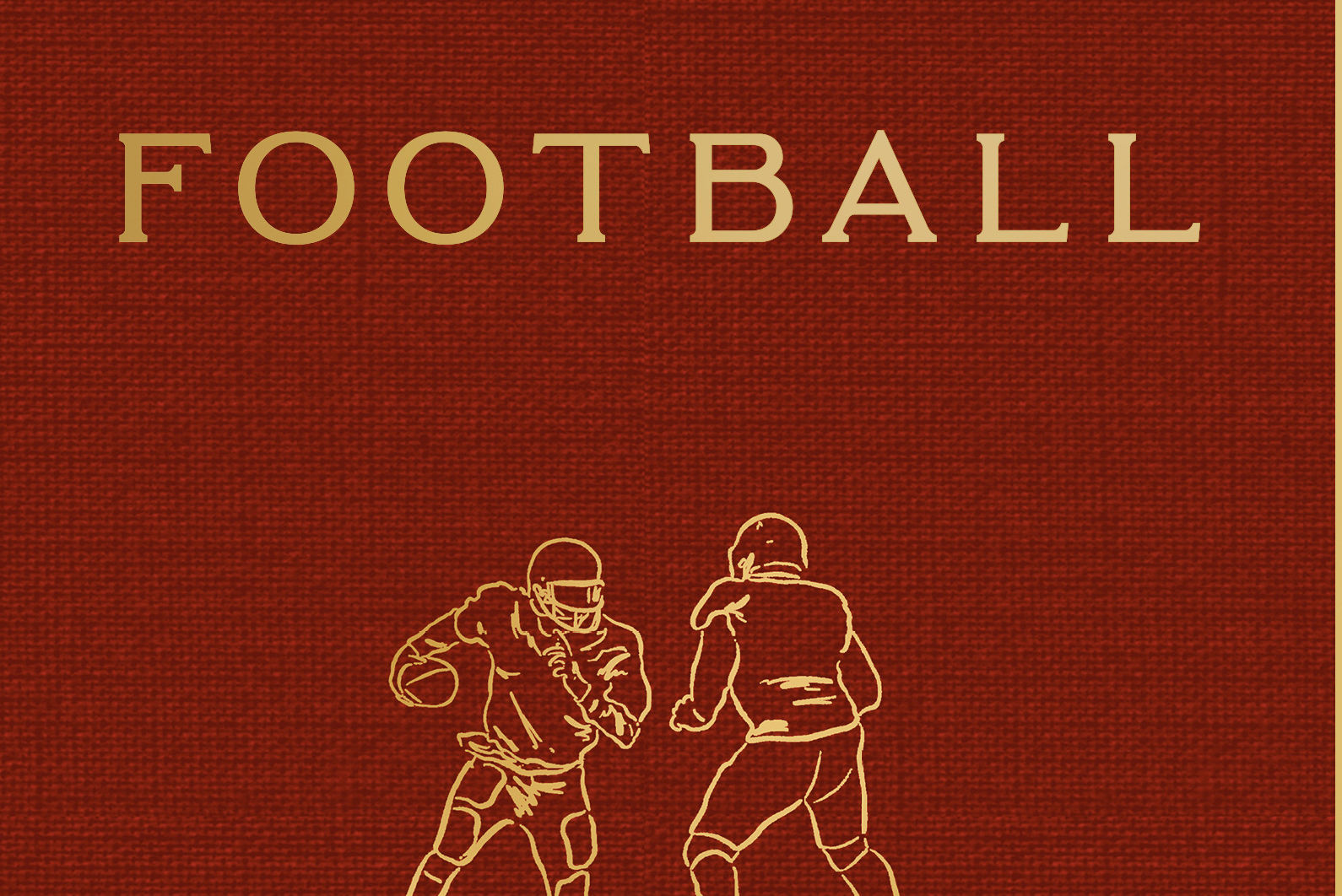Bill Oakley’s Space: 1969 Is an Absurd, Rewarding Sci-Fi Romp

Bill Oakley, writer/director of Space: 1969
Image: Jordan Chesbrough
Listening to the first 20 minutes of Bill Oakley’s new radio play, you’d be forgiven for assuming he dreamt it up at the Lift Off Lounge. That bar—a Martian-green clash of ’50s nostalgia and sci-fi kitsch on NE Sandy Boulevard—is a perfectly logical aesthetic birthplace for Space: 1969, Oakley’s five-hour comedy/sci-fi epic that Audible (its home platform) is billing, somewhat dubiously, as an audiobook.
In truth, though, the former Simpsons scribe has been chipping away at the project for more than a decade, beginning well before the Lift Off ever touched down. “The first image that came to me was John F. Kennedy with an eyepatch,” Oakley recalls on a Zoom chat from his Portland home. “And then it was, ‘Just imagine if the shot had been at a slightly different angle, and he had survived the assassination attempt.’ And then it started expanding: ‘What if we never had Vietnam?’ It took years for this to grow throughout my brain.”
The result is a kooky, involving, moon-set saga that throws together a third-term JFK, a knockout vocal performance by Natasha Lyonne, and supporting characters that range from the Richard Nixon to Howard Hughes to the cast of The Beverly Hillbillies. The initial spark, Oakley freely admits, had some overlap with Stephen King’s Kennedy-centered 2011 novel 11/22/63, but the final product is—apologies—in a different galaxy altogether.
The log line goes something like this: Nancy Kranich (Lyonne) is a hard-drinking night nurse working on Howard Hughes's Liberty Bell space station as John F. Kennedy is preparing to open a moon colony. (JFK has survived the shot in Dallas, eliminated the 22nd amendment, allowing for the aforementioned third term, and focused virtually all U.S. efforts on space travel.) After Jerry Lewis turns up dead at the station's Hilton Hotel following JFK's third inauguration, Nancy is pulled into a conspiracy so delightfully wild that scarce detail is best. The proceedings are narrated by a bitter, forgotten Richard Nixon.
If all that makes your head spin—we haven't even touched on the Washington Post LSD party—it's by design. “One of the things I found most entertaining about this was gradually ramping up the crazy, until you completely believe that Richard Nixon is managing a Shakey’s on the moon,” Oakley says.

Image: Courtesy Audible
Space: 1969 is littered with the sorts of irreverent details Oakley concedes are “mainly for him,” but which bring the whole enterprise to colorful, surprising life. We hear segments of the ’60s sketch show Laugh-In and The Dating Game that are painstaking recreations of the real thing. (Oakley is especially proud of the voice casting for Dating Game host Jim Lange: “It’s a real special skill to sound like someone nobody remembers.”) In keeping with Oakley's reputation for food jokes, a significant amount of plot revolves around Shakey’s pizza, Clark bars, and imitation ham, and there are regular gag ads for the long-defunct Hollywood Bread. Jerry Lewis, throughout, is exclusively referred to as “Golden Globe-nominated comedian Jerry Lewis.”
One big help in maintaining the piece’s idiosyncrasies? The medium. Over the years, Oakley has imagined Space: 1969 in various formats, most especially as a TV show. It makes sense: he’s had his hands in everything from The Simpsons to Futurama to Portlandia across his three-decade career. But as writing wore on, his ambitions began to outpace the format’s limitations. “It became very clear that this would cost a fortune. It would be the most expensive TV show this side of Game of Thrones,” Oakley says. “And it’s also a very niche thing. Comedy is niche, sci-fi is niche, and period pieces are niche, so it’s a triple whammy for TV. Whereas in audio, all bets are off.”
So when Audible approached Oakley four years ago and asked if he’d be interested in pitching them anything, he saw an in. He didn’t expect them to bite, but they did, and they also helped land his ideal leading lady: Natasha Lyonne. The character of Nancy was, as will become clear to any living listener about thirty seconds in, written with Lyonne in mind; nearly every line reading is a contender to knock her Russian Doll pronunciation of "cock-a-roach" out of the Lyonne catch-phrase hall of fame. “There’s about 80 different types of performance within her role, and she nails them all," Oakley says. “She delivered a better version of exactly what I had in my head for years."
The actual recording process, though, was no walk in the park. Space: 1969 was cut at the height of COVID, meaning all 24 members of the cast recorded their lines separately, on different timelines, and then the editing crew stitched every scene together. Lyonne knocked her several-thousand-line role out in two days, between projects. Everyone else, in total, took about six months. Each actor had to be shipped a home studio by Audible’s team that included an audio deck, microphone, and soundproofing, plus a laptop that Audible controlled remotely. “Fortunately, I didn’t have to handle that,” Oakley says with a laugh.
The bigger challenge, for him, was sustaining a single story over five and a half hours. He'd directed voice actors before—on Futurama, Mission Hill, and The Simpsons—and written plenty of high-concept comedy, but nothing this serialized and complex. "It you had told me at the outset that I was going to have to write 550 pages, I would have said, 'Forget it. Never mind,'" he admits. He got through it by forcing himself to cough up 10 pages every day, internet off, and was spurred by the assurance that Audible would offer very little editorial interference. "If I had had to turn this in and then some TV network was going to give me notes on it, I would kill myself," Oakley says. “[Audible] never said, 'Nobody knows who Art Buchwald is, you can't have this character in here.'"
The 10-chapter final product dropped at the end of June, and by late July, it had cracked Audible's top 20 overall titles. Oakley has been pleasantly surprised by the positive response, especially from anyone under 50, considering the hyperspecific subject matter. He's about five percent finished with a script for Space: 1970 should things continue to go well, and his history major brain is already working in overdrive to cook up alt-timeline plot nuggets. "I laid in a lot of crumbs," he says. "Like Nancy's brother, who's a POW in what would have been Vietnam but is now part of red China. Things like that."
It’s tough, after the giddy ahistoricism of 1969, to let your imagination stop at red China. Intact ’70s Beatles as imagined by Bill Oakley, anyone?




